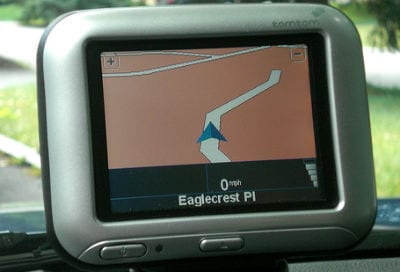TomTom, the Dutch company known for its GPS navigation units, announced last week that it has partnered with a British car insurance company on a program that offers to lower drivers’ premiums based on data that TomTom records about people’s behavior behind the wheel.
 The program, “Fair Play Insurance,” works like this: Drivers elect to have a GPS unit installed in their car, which records their driving data. That data is analyzed by the insurance company, which then adjusts their premiums based on the evidence — doing away with traditional “risk factors” like age, gender, and location.
The program, “Fair Play Insurance,” works like this: Drivers elect to have a GPS unit installed in their car, which records their driving data. That data is analyzed by the insurance company, which then adjusts their premiums based on the evidence — doing away with traditional “risk factors” like age, gender, and location.
So far, the plan is only intended for individual drivers. But TomTom’s been using the same data-crunching technology in its fleet division for years, and it isn’t hard to envision the same insurance-premium deals eventually hitting the fleet and commercial market.
According to Reuters’ Roberta Cowan, TomTom will take a cut of the insurance sales profits. The program is currently available only in the U.K., though TomTom expects to roll it out across Europe this year.
Should the plan prove a hit and eventually hit the commercial and fleet market, it might present an interesting dilemma for managers: On the one hand, tracking drivers with GPS units can help provide driving efficiency and cut costs. Yet many drivers may chafe at the big-brother-ness of being constantly tracked.
We’ve written about these sorts of tensions before, from the use of in-cab cameras that monitor employees’ driving habits to manager’s ability to use GPS to reduce technicians’ “goof time,” one McKinsey & Company consultant’s term for an extended lunch or a less–than-ideal driving route.
Of course, one way to blunt the tension would be to activate TomTom’s latest feature, in which you select a character’s voice from The Simpsons to read your directions out, instead of that sultry-lady voice. Blame Mr. Burns!

Share this: